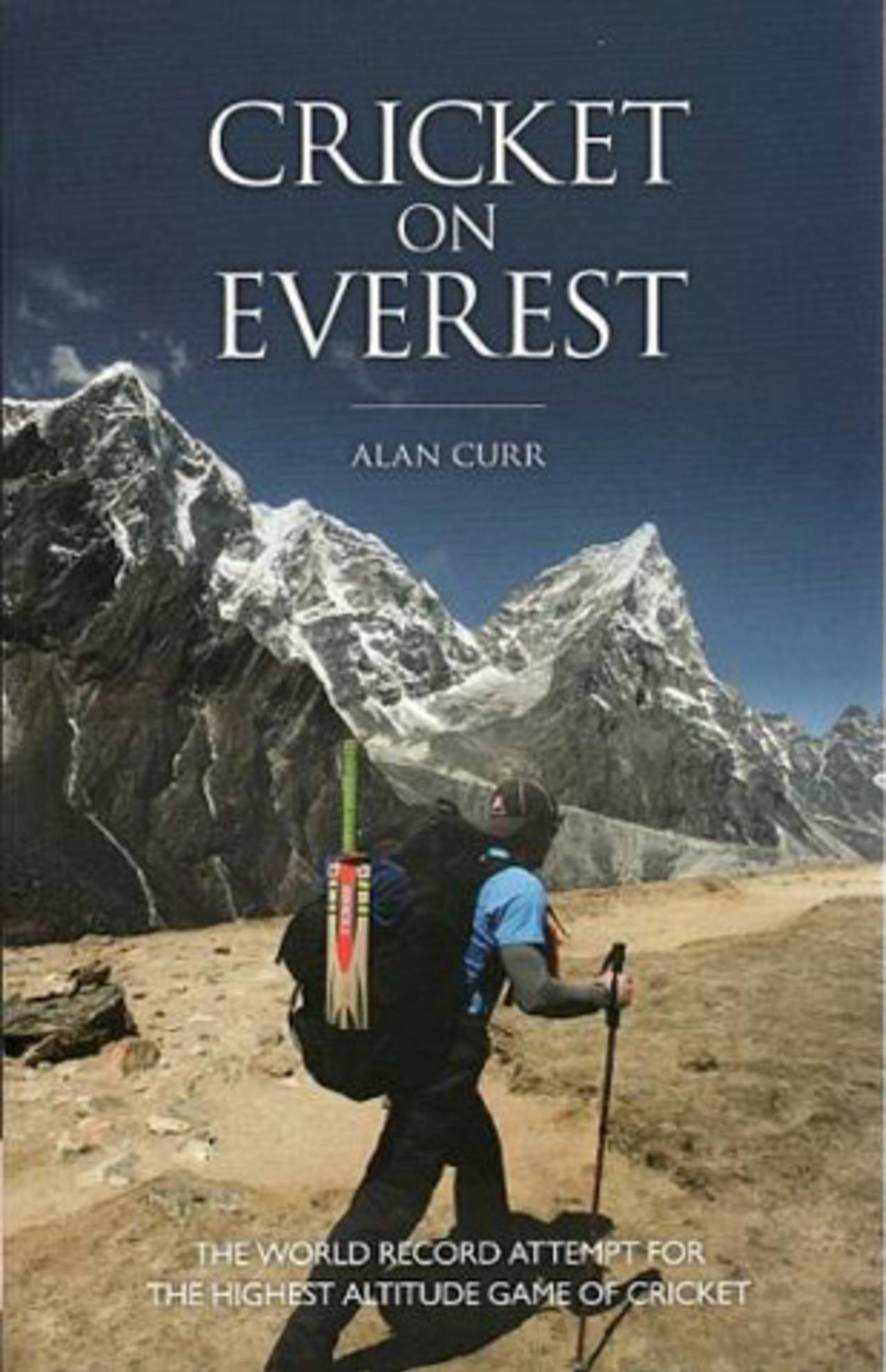Tall tales of cricket
The story of the intrepid men who played cricket on the world's highest mountain for a good cause
Alan Gardner
Nov 25, 2012, 2:50 AM

Matador
Sport being what it is, commentators are always on the lookout for players who will take it to new heights. The book should be closed for quite some time, however, and not because of the efforts of Sachin Tendulkar, Roger Federer or Spain's footballers. Three years ago, a collection of amateur cricketers with grand ideas set out to play a game of T20 at the site of the original base camp on Everest, 5165 metres above sea level, and to claim a world record for playing sport at altitude. Cricket on Everest is the (tall) tale of how they got on.
As Alan Curr, the author and one of the umpires for the so-called Everest Test, is at pains to point out, the undertaking involved a lot more than "just packing a tent and a cricket bat and wandering off into the Himalayas". It was not so much an exhibition match as an expedition match, and the book covers mountaineering lore, Nepalese culture, and the creaking cogs of local bureaucracy as well cricket. The goal was also to raise money for charity - they pulled in £100,000, with the Lord's Taverners among those to benefit - but, of course, that's not to say the result didn't matter.
Long before the mountain face-off between Team Hillary and Team Tenzing begins the process of turning bravado into reality. To get The Drovers, a "social cricket club" named after a London pub, into the Guinness Book of Records, Richard Kirtley (cousin of former England bowler James Kirtley) comes up with the plan. The first half of the book focuses on assembling the 50-strong trekking group, with more than a year's worth of preparation and admin to document. Not the sort of narrative to have you feeling light-headed, it has to be said, but it does give the reader a chance to get a feel for the numerous names and characters involved, and Curr does well to sprinkle in blog excerpts and first-person interviews that add valuable colour.
Still, rather like the build-up to a much-anticipated series, it is a relief when the phoney war gives way to action. After flying to Kathmandu with half a ton of kit in the hold, the two teams plus trektators and medics are soon doggedly plodding their way up the mountain - despite the efforts of interfering conservation officer "Mr X".
With the threat of disaster at high altitude combining with a sort of madcap pursuit of cricketing immortality, the book lies somewhere between Touching the Void and Penguins Stopped Play. Alongside the more prosaic afflictions of diarrhoea and vomiting, there is also the possibility of coming down with acute mountain sickness. "The worst situation is someone dies," says Breck Lord, one of the doctors on the trip, in a dispatch from the mountain filmed for television. As Curr describes, the hopes of the team and their supporters were sometimes at odds with those of the ITV cameraman travelling with them. Would all of the Drovers return?
There is something appropriate about a sport still redolent of Victorian values being invigorated by a spirit of exploration and discovery. The pitch, "a giant frozen lake covered in sand and large rocks", is also a throwback, even for the hardened village cricketer. But modern cricket is a squad game and the tricky issue of selection - both Hillary and Tenzing start out with 15 players to pick from - clings to the party like snow to the summit.
Curiously, Guinness has yet to give the match its official stamp, querying whether Gorak Shep is a permanent venue (as Curr says, it's not as if Everest is going anywhere). But those who spent two weeks taking cricket to the Himalayas know the scale of their achievement. As Theodore Roosevelt, whose famous speech is read out before the game, almost put it: "The credit belongs to the men who were actually in the arena."
And the result? Well, you'll just have to read the book. The only thing missing is a scorecard.
Cricket on Everest
by Alan Curr
Matador
£9.99

by Alan Curr
Matador
£9.99
Alan Gardner is an assistant editor at ESPNcricinfo